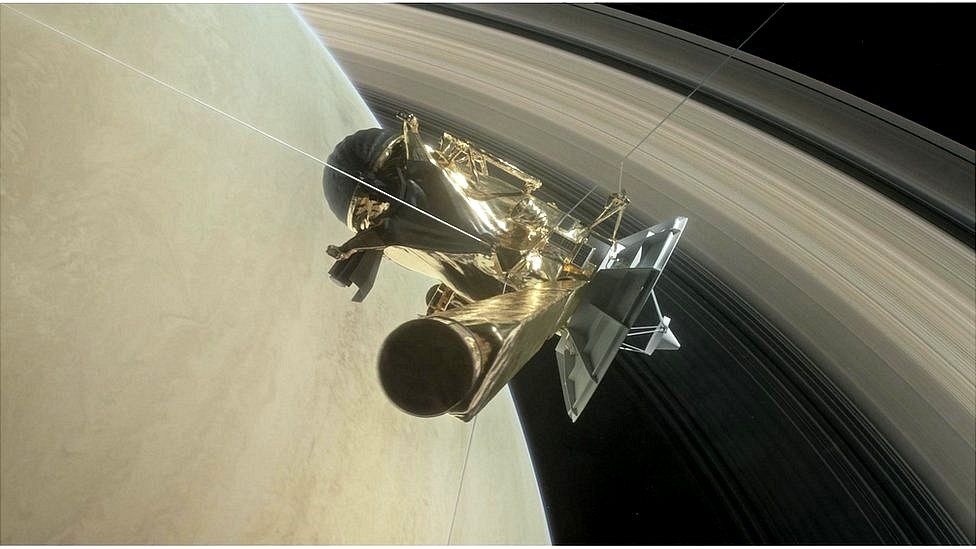Space science work recognised in New Year Honours
- Published

A leading member of the Cassini mission to Saturn, which ended spectacularly in September 2017, has been recognised in the New Year Honours list.
Prof Michele Dougherty from Imperial College, London, has become a Commander of the Order of the British Empire.
Helen Sharman, the first Briton in space, joins the Order of St Michael and St George, for services to education in science and technology.
Overall, science recipients make up about 3% of the list.
A professor of Space Physics at Imperial, Michele Dougherty was a key member of the Cassini mission over the 20 years since it launched in 1997.
Cassini was a hugely successful venture, discovering active, icy plumes on Saturn's moon Enceladus, as well putting a lander on another moon, Titan.
The mission ended when the probe was deliberately crashed into Saturn's atmosphere.
Helen Sharman was made an OBE in 1993 after her trip to space onboard a Soyuz spacecraft in 1991.
She has now been elevated to be a Companion of the Order of St Michael and St George, for her long-standing commitment to educational outreach in science and technology.
Another well known researcher in science and health, Prof Robin Lovell-Badge, is made a CBE for his work in genetics, stem cell research and the public understanding of science. He is a senior group leader at the Francis Crick Institute.
Also on the New Year list is volcanologist Prof Steve Sparks, from the University of Bristol, who receives a knighthood. Prof Sparks is a leading expert in this field whose work has helped improve the ability to forecast deadly eruptions.
In 2015, he was a winner of the Vetlesen Prize, sometimes described as the Nobel prize for earth sciences.
Prof Christl Donnelly, from Imperial College, becomes a CBE for her services to epidemiology and the control of infectious diseases. Prof Donnelly is well known for her work in relation to bovine TB, and on the effectiveness of badger culling and cattle vaccination as ways of controlling the disease.
Another to receive a CBE is Dr Demis Hassabis, the co-founder and chief executive officer of DeepMind, a world leading company in artificial intelligence research. The firm's computer programme defeated a human Go player in 2016, in what was seen as a landmark moment for the development of AI.
Earlier this month, the software beat other programmes in chess within hours of teaching itself the game from scratch.
Others recognised include Prof Karen Holford, the deputy vice chancellor of Cardiff University for services to engineering and for the advancement of women in science and engineering.
- Published29 December 2017